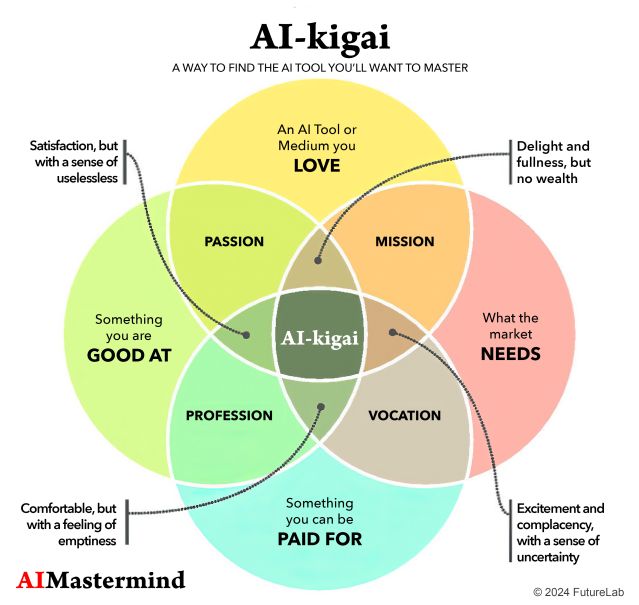Artificial Intelligence
The AI Hunger Games Is Coming to Your Workplace
Junior employees armed with AI skills may even replace first-line managers.
Updated January 27, 2024 Reviewed by Ray Parker
Key points
- A new study predicts 85 million jobs will be eliminated by 2025.
- Acquiring AI skills is crucial for survival.
- We must train 100 million people to develop serious AI skills over the next 18–24 months.

A new research report by Oliver Wyman Forum, titled How Generative AI Is Transforming Business And Society, predicts that 85 million jobs will be eliminated by 2025. One-third of all entry-level roles could be automated, and junior employees armed with generative artificial intelligence (AI) may potentially replace their first-line managers, hollowing out organizations.
This is going to be a bloodbath.
The Great AI Layoffs will resemble The Hunger Games, except that instead of using swords and hunting bows, the victors will need to demonstrate superior skills with AI tools to see who survives the culling. According to the American Psychological Association, employees in the United States who are concerned about AI are 68 percent more likely to feel tense or stressed out during the workday than those who aren't worried and are more than twice as likely to believe they don't matter to their work community.
You have a decision. You can give up and curse your bad luck about robots taking your job or pick up that bow and arrow and decide to survive. Choose to win and declare that you intend to succeed and thrive in the new AI world.
Who Needs to Worry?
Acquiring AI skills isn't easy. It's a cognitive challenge of significant magnitude, equivalent to mastering a new language. It is simply not possible to gain AI literacy overnight by watching YouTube videos. It will require months of serious effort to master this new skill. And the truth is that nobody can do your mental pushups for you.
Plus, the sad reality is that many Americans—fat, rich, and happy for decades—may not be up to the task, at least when compared to someone in Krakow, Bucharest, Saigon, Dhaka, or Buenos Aires—lean and hungry and supremely motivated.
To prepare for the coming AI Hunger Games:
- It will take hard work and a few months of serious effort to achieve AI literacy—nobody can do your pushups for you.
- Mastery comes from love; find an AI tool you enjoy, and learn that first (this is true for painting, music, martial arts, etc.).
- Go deep with that tool until you have unlocked its mysteries, and then move to the next AI tool; each tool gets easier to master.
- Finally, find a coach or advisor who has successfully survived a hunger game in the past to help you.
The key is mastery, which comes from love. If you're learning AI for work, it will be a lot less fun, take longer, and face a greater risk of failure. Here's a tip based on the Japanese concept of ikigai 生き甲斐. Find an AI tool you love; find something that gives you a sense of purpose and a reason for living.

At a societal level, we need to train rapidly, faster than we ever thought possible. This is like a Manhattan Project, except that the critical mass we seek is with global human intelligence. Computer literacy took about 20 or 30 years for society to achieve. We need to train 100 million people over the next 18 to 24 months. This is not easy to achieve, especially with most of the population being complacent about the risk of severe societal disruption.
The story of Léon Serpollet and the world land speed record is instructive. Serpollet, a French industrialist and pioneer of steam automobiles, invented and perfected the flash boiler in 1896, which made steam a practical source of power for automobiles.
Besides being an inventor, he became the first driver of a non-electrically powered car to hold the land speed record. In April 1902, on the Promenade des Anglais in Nice, he drove the Oeuf de Pacques—the Easter Egg, so named because the car had an oval shape—at the heretofore unimaginable speed of 75.06 miles per hour, breaking the 1899 record of Camille Jenatzy's La Jamais Contente.
The point is that pretty much anyone can drive 75 miles per hour today and do it while drinking coffee or putting on make-up. This means that something only a daredevil racer could do a hundred years ago is now commonly achieved; driving at 70 miles per hour isn't a rare skill anymore. It's practically a requirement for daily life.
But here's the amazing thing: Humans didn't take a hundred years to evolve into race car drivers. Pretty much every human being today can learn how to drive that fast with a couple of months of driver training.
Humans have amazing capabilities that go far beyond the ability to drive really fast while drinking coffee. Consequently, it's not absurd to think that in 100 years, everyone will be a bit more like Steve Jobs, fluent in both AI and quantum computing and manifesting the essential human ability to innovate, essentially driving their brains down the information highway at 75 miles per hour without even breaking a sweat.
At a societal level, we need to wake up and shift our collective mindset to that of winning. We need to regain our collective fighting spirit. There's nothing a person, a company, a city, or a country can't do if we all tap into our courage and resilience to commit to doing it together.
Let's do it. Let's all stand up and fight for our future together.
References
Report: How Generative AI Is Transforming Business And Society. Oliver Wyman Forum. https://www.oliverwymanforum.com/global-consumer-sentiment/how-will-ai-…
Worries about artificial intelligence, surveillance at work may be connected to poor mental health. America Psychological Association. https://www.apa.org/news/press/releases/2023/09/artificial-intelligence…




